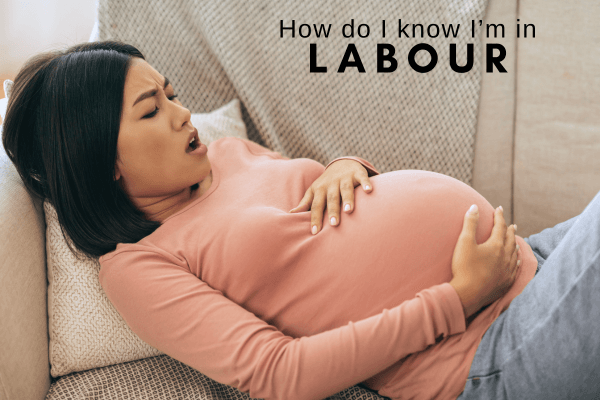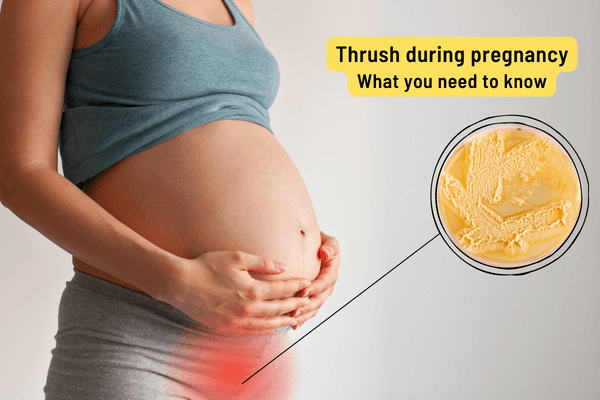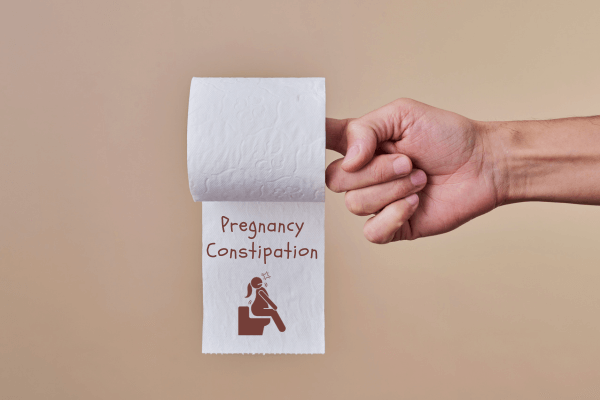Will I ever get back in shape after childbirth? Will my skin lose the pregnancy glow? Will my husband still love me? How can I find relief from this back ache? What exercises can I do to help me in birthing? There are a ton of questions and anxieties that may be running through your head not too long after you test positive for pregnancy. We got you covered. Our best advice: don’t hesitate to seek help and support!
Before we begin, let us hear a first-hand experience of 33-year-old Rachel Johnson, mother of two lovely children – Joel (4) and Esther (2).
“During pregnancy, my greatest struggle was physical – constant nausea until I was 20 weeks pregnant. I was so frustrated with the people who always talked about nausea just being part of the first trimester while I kept waiting for it to go away long after the 1st 13 weeks had passed! I faced exhaustion, and then increasing difficulty sleeping in my last trimester (and having to go to the bathroom almost every hour!). I also struggled mentally and emotionally – kept wondering if I would still be attractive to my husband, worrying about the possibility of a miscarriage, or feeling like I didn’t know enough about how to be a good mom.”
You might resonate with some of or all of Rachel’s feelings and anxieties. What’s peculiar during pregnancy is how physical struggles eventually play on your mind and affect your mental well-being. And how most women feel like they are grappling with all this alone. Good news is – there’s help available and plenty – your supportive spouse and your loving family and friends bring up the front but let’s not forget the professionals that specialise in supporting pregnant women and new mums and do it with passion and purpose. Also, there’s a whole community of mothers who have gone through similar challenges and are happy to help with advice and their own experiences.
So, what support can you rely on when pregnant?
Just to get you started, here’s a checklist of the support you can get during pregnancy.
Types of Pregnancy Support
Prenatal Nutritionists
You may have read a lot of books on pregnancy nutrition or heard a lot of advice, but take the guesswork out of the process and speak to a nutritionist. Prenatal nutritionists specialise in and deeply understand nutrition requirements for women in the pregnancy, postnatal and breastfeeding stages. Each woman’s body and needs are different and nutritionists can give you a healthy diet chart for better gut health and for complete nutrition.
FUN FACT: Did you know that the blood volume in the body during pregnancy increases 40 to 50 percent? That’s just your body’s way of helping to supply extra oxygen needed to support a healthy pregnancy. No wonder, one of the early signs of pregnancy is lightheadedness as the body prepares for the increased blood volume!
Pelvic health experts
Pelvic floor is the group of muscles that stretches across the bottom of your abdomen – from tailbone to pubic bone. As the baby inside your womb grows, the pelvic floor also changes, with the pelvic muscles working harder than normal. During this time, pelvic floor exercises become difficult even though they are essential, and you may need support for pelvic pain. Consult a pelvic floor physiotherapist who may suggest an individualised programme for safe pelvic exercises along with advice on how to prevent/handle problems such as Diastasis Recti and lower back and hip problems.
Family and friends
Apart from browsing the Internet for more information, consult mothers within your family. And instead of just asking for information, also ask them to share their experiences. Same for friends, especially those who have already gone through pregnancy themselves. Involve your spouse also in the process of your struggles. Don’t stop talking or sharing your feelings just because you are pregnant, because in reality, it is a journey for the both of you.
Doula and birthing experts
A lot of anxiety is caused in anticipation of labour and what if’s surrounding it..This stress could arise from not knowing about the kind of birth you want for your baby or from the various scenarios playing out in your head. Consult a doula. A birthing doula is a professionally trained companion who is trained to support expecting mothers through the preparation for and in the process of childbirth. Many women have found great friends in doulas and because they have done it for so many other women, they are a storehouse of empathy, gentle support and information.:
BOOK RECOMMENDATIONS:
1] What No One Tells You: A Guide to Your Emotions from Pregnancy to Motherhood – Dr. Alexandra Sacks and Dr. Catherine Birndorf
2] Expecting Better – Emile Oster
3] What to expect when you’re expecting – Heidi Murkoff
4] The Fourth Trimester: A Postpartum Guide to Healing Your Body, Balancing Your Emotions, and Restoring Your Vitality – Kimberly Ann Johnson
MOVIE RECOMMENDATION: Fatherhood on Netflix.
Prenatal and childbirth educators
Attend prenatal classes. Whether you are opting for online or offline classes, empathy is crucial. You are not alone in your struggles and there are many factors and questions that will come into play during your pregnancy. Bring your spouse along to the classes, it will help them understand your needs better. Fellow pregnant women, childbirth educators and your spouse can be your best early pregnancy support group.
Relationship counsellors
One of the things that Rachel mentioned in her story was how worried she was about whether she would still be attractive to her husband after the child’s birth. This is one of the many emotions that you may be going through and it is healthy to address them. Your relationship is now moving on to the next level with many new shared responsibilities. Some strain or change is inevitable. Relationship counsellors will help you touch upon all the aspects of this change – emotional, mental, financial and sexual.
Endocrinologists
Pregnant women usually face endocrine (hormonal) problems during pregnancy ranging from gestational diabetes to Hypo and Hyperthyroidism. Even though this is not unusual, seeing a specialist is a wise move.
Dermatologists
Skin changes, including breakouts and discoloration are common during pregnancy and so is the anxiety that goes along with it. If you constantly have breakouts and increased acne, see a dermatologist and get a personalised plan.
Remember that your worth is not determined by how well you handle pregnancy or how productive you are during this period. You are carrying another human being in your womb – and that’s quite the acheivement! Take the time to look after yourself. Do not hesitate to reach out for help and support.
What after the childbirth? How will my body react? What if I don’t know how to care for my newborn? Is your mind already racing? Fret not, we shall cover all of your post-pregnancy questions in another post soon. Watch this space.
8 kinds of support champions for pregnant women
1] Prenatal Nutritionists
2] Pelvic health experts
3] Family members
4] Doula and birthing experts
5]Prenatal and childbirth educators
6] Relationship counsellors
7] Endocrinologists
8] Dermatologists







